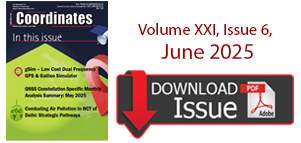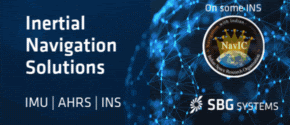| Galileo Update | |
GALILEO UPDATE
Galileo PRS signal accessed via the cloud
In a world first, the Public Regulated Service (PRS) of Galileo has been delivered via the ‘cloud’, paving the way for its automated use by the security and emergency services and critical national infrastructure (CNI) as the secure position and timing service of choice across Europe. Accessing PRS via the cloud overcomes a major problem for some potential PRS users due to the security protocols required when managing the cryptographic keys needed to access the signals.
PRS is Galileo’s secure signal, available to government authorized users; usually those integral to a country’s operation that require location, navigation or timing information to operate. PRS signals are encrypted and decrypted by cryptographic keys which, until now, are stored on the PRS receiver and managed by the PRS user. However, the system developed by NSL and QinetiQ places these keys in a secure server located in the ‘cloud’, accessed via the internet, making PRS available as a service for secure, authenticated position and timing information.
On the 18th May 2016, Ordnance Survey in Southampton successfully demonstrated three different “user scenarios” – an Unmanned Aerial Vehicle (UAV), a surveyor with a GNSS receiver attached to a mobile phone and a static reference receiver. In each scenario, a receiver captured signals from both Galileo open access and PRS signals, and also open GPS signals. The three different users were located around the Ordnance Survey site, simulating routine tasks. The signals captured by their receivers were sent, via cellular 3G links, into the ‘cloud’ to be processed. Position and time was calculated from the open-access signals by servers at the NSL site in Nottingham.
European GNSS Agency announces Prize for Galileo Initial Services
The GSA is accepting applications for its annual ESNC Special Topic Prize. This year, the Agency’s 2016 prize will reward the most innovative application idea for Galileo Initial Services.
Submissions must leverage Galileo Initial Services, which should be declared later this year. Submissions should also utilise the power of a multi-constellation environment as a means for providing new and more robust benefits to end users.
All ideas and applications need to demonstrate commercial feasibility, use European GNSS signals as a primary means of positioning, and be able to contribute to Galileo market uptake, among others.
The winner will have the opportunity to develop their idea at an incubation centre of their choice within the EU- 28 for six months, with the possibility of a further six months according to progress. Furthermore, the winning idea will have the chance to be showcased at the official Galileo Service Declaration Ceremony in Brussels, when Initial Services are announced to the world.












 (3 votes, average: 4.67 out of 5)
(3 votes, average: 4.67 out of 5)





Leave your response!